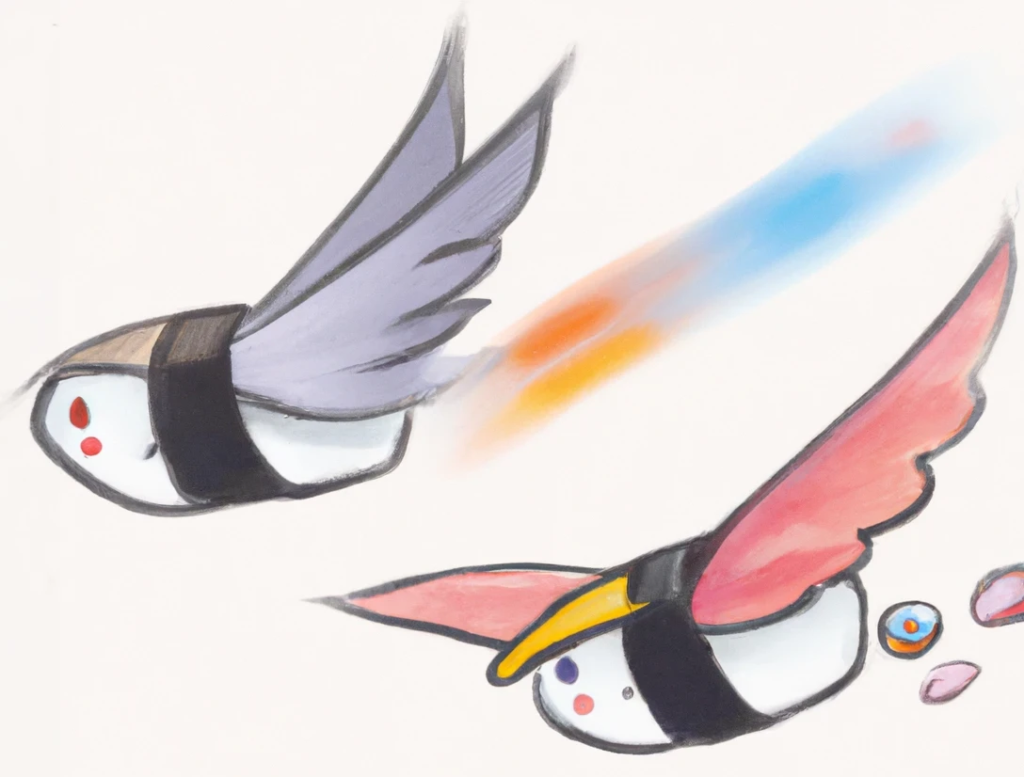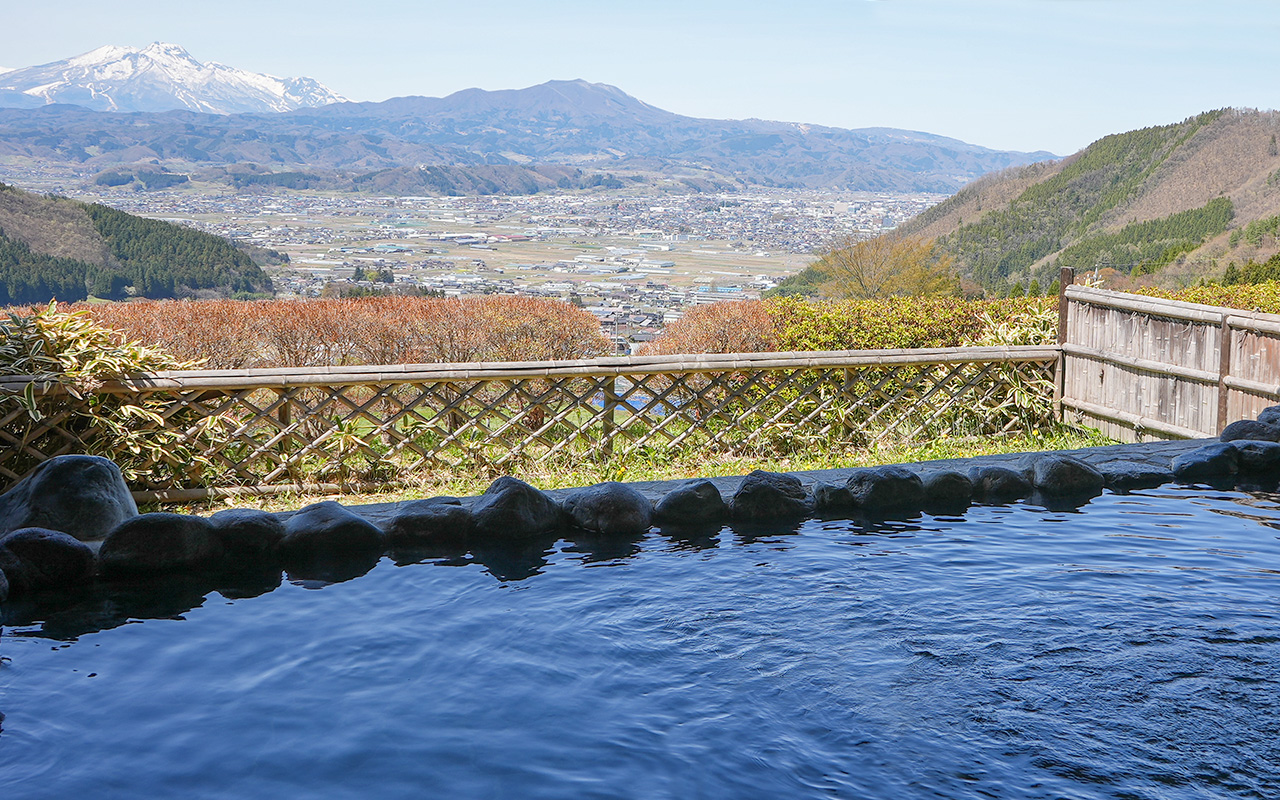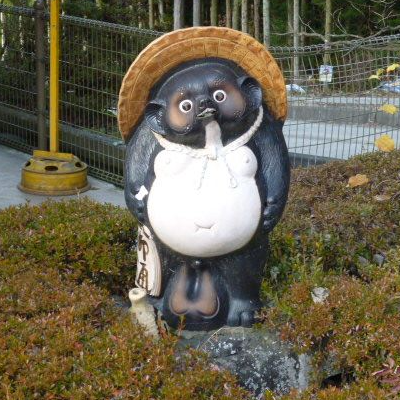
Mama-san and Sushi Birds

We heard mama-san every morning around three. Sometimes four. That’s when her karaoke bar closed down and she sent her customers into what was left of the Tokyo night.
Always cheerful, and usually tipsy, mama-san would yell out:
Arigatoooo! “Thank yoooouuuu!”
Mata kite ne! “Please come baaaack!”
One memorable night mama-san walked off singing her own sweet song:
Okane ga hoshii. 🎶 Okane ga hoshii. 🎶 Okane ga hoshiiiii. 🎶
“I want money, I want money, I really want money.”
She loved that song…and customers loved her. Everyone left happy; lighter in the wallet, for sure.
We never met her, or even saw her. We considered dropping in just to introduce ourselves. But we don’t drink, and karaoke without alcohol is like battlefield surgery without anesthesia. So, we did the next best thing. We prompted DALL·E, a text-to-image Generative AI, to do the work for us. Not bad.

Mama-san according to DALL·E
It’s great to be back. We love the Great Pacific Northwest. We have deep family, personal, and professional ties going back decades. On Father’s Day, two grandsons, ages 6 and 4, provided on-demand entertainment and chaos. They “helped” us plant vegetables and flowers in the garden and will certainly excel when it comes time to harvest the potatoes (a Japanese experience called o-imo hori that the adult Birt daughters did in Japan when they were exactly the same ages).
Redmond and the entire Seattle region is exciting for its access to powerful new technologies such as Generative AI and emerging applications and use cases. We’re in the business of helping leaders reimagine and transform their organizations. So, we definitely want to keep our finger on the AI pulse here.
But life in Turbocharged Tokyo offers something special. There is always something to do, someone to meet, a new trend to decipher. Others thought so, too, judging by the gleaming white Bentleys lined up in front of the Chinese restaurant next to our apartment building (directly across the street from the now notorious karaoke bar). The chauffeurs also lined up, conspicuously waiting for the return of their VERY rich Chinese employers, who had fled Beijing’s latest crackdown.
Tokyo is only part of the story. Mayumi’s family lives in the foothills of Nagano Prefecture, close to the site of the 1998 Winter Olympics. How fun to sit in the municipal onsen (hot springs) on the men’s side with my father-in-law, while Mayumi accompanied her mother on the women’s side. The view of night-lit ski runs is breathtaking.

Onsen view

Tanuki at Pom Poko Hot Springs
Instead of snowbirds, who migrate north and south, we want to be Sushi Birds who move east and west. Or, maybe it’s Sushi Birts. 😆
This migration needs to be seasonal. If you’ve ever spent a rainy season and summer in Tokyo, you will immediately understand Seattle’s summer appeal.
We are witnessing an exciting global migration of talent and technological transformation, with Japan as one of the key destinations. We want to participate in that migration.In February we gave a well-attended presentation on our Hawaii digital transformation (DX) projects to the American Chamber of Commerce in Japan (ACCJ). We were delighted to learn that the ACCJ covered our presentation for an article in their most recent journal issue. Please click the image to download the PDF.

ACCJ Journal 2023 Spring/Summer
As Sushi Birds, we plan to migrate west to Japan in the early fall and stay in the same apartment building. With any luck, mama-san will still be singing her “I want money” song.
In the meantime, we can fly anywhere, anytime. If you’re looking to reimagine your future, contact us. We’d love to hear what direction you’re heading.
![]()
